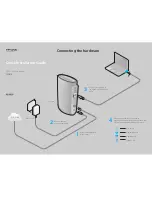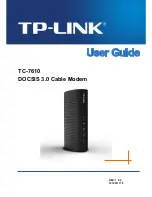
6 Commands
Umlaut
ASCII
Transmitted Character
ä 132
14
ö 148
15
ü 129
16
Ä 142
20
Ö 153
21
Ü 154
22
ß 225
23
Table 6.2: Conversion of German special characters.
The Huffman data compression, which can improve speed up to 80% (effective character
length 4.5 to 5 bit) allows to reduce the middle character length. The data compression of
lowercase letters is better as for uppercase letters. The ASCII mode will be useful only if
the text contains non ASCII characters, or many uppercase letters.
The PTC firmware scans through each packet determining whether HUFFMAN or ASCII
coding will be more efficient for transmission, and selects the better one. Manually
selecting the ASCII mode (
MOde
0) makes the controller transmit ASCII anyway. Doing
this should only be necessary in very special cases.
Automatic mode also works on characters exceeding 127 decimal. Therefore 7PLUS files
may be transferred without any user intervention.
The parameter 2 is effective only with a PACTOR Level II link. With Level I contacts,
the system behaves as if the parameter 1 had been chosen. The automatic compression
used in PACTOR-II has proved to be very advantageous and reliable. Therefore, the
MOde
parameter should only need to be changed in exceptional circumstances (e.g.
measuring the text throughput without compression) to a value < 2. There are no
problems caused by leaving the Level II compression turned on, even when transmitting
7Plus, binary files or graphics. No manual intervention by the operator is required, as the
PTC-IIex will switch automatically to uncompressed ASCII transmission for individual
packets, if necessary.
6.61
MONitor
This command switches to AMTOR listen mode (Mode L). In AMTOR listen mode, an
existing AMTOR ARQ link between two stations can be read on screen.
As the AMTOR listen mode requires a lot of computer time, it is not possible to receive
any FEC transmissions or answer PACTOR or AMTOR connect requests in this mode!
The PTC doesn’t react on PACTOR or AMTOR ARQ connect requests.
By using the CHANGEOVER character (refer to chapter
6.19
, page
44
), it is possible to
re-synchronize at any time.
If the PTC does not switch back to letters, due to poor reception conditions, using <Ctrl>
+ <B> Ctrl-B> will force a letter shift.
62
Summary of Contents for PTC-IIex
Page 14: ...List of Figures and Tables XII...
Page 30: ...3 Installation 16...
Page 108: ...7 Audio 94...
Page 126: ...8 FAX 112...
Page 173: ...12 SYStest 159...
Page 183: ...14 Circuit Description 169...
Page 195: ...15 Basics 181...
Page 201: ...B Technical Data 187...
Page 202: ...C Layout Appendix C 19 Layout B 1 Motherboard Figure B 1 Motherboard 188...
Page 203: ...C Layout 189...
Page 215: ...Index 202...
















































